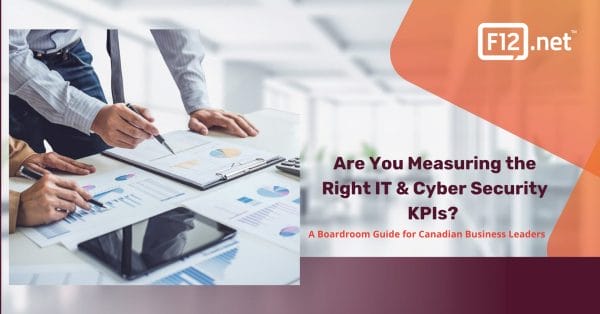Brief: In this article we examine common pitfalls in IT procurement, and key best practices for ensuring compliance and making sure you get value out of your vendor contracts.
A friendly piece of advice; assume that I know everything.
— Moff Gideon, The Mandalorian
Think back to early 2020.
It was like a sudden storm shaking the very foundations of supply chains globally. Companies that might have once taken their supplier relationships for granted found themselves in a scramble—facing shortages, transportation nightmares, and a whole range of supply chain issues.
This was about survival, keeping the operations running without losing the pace.
What this crisis highlighted was something quite profound yet often overlooked: the absolute necessity of having not just good but great Supplier Relationship Management (SRM).
But why is this particularly relevant to IT procurement?
Let’s break it down:
1. Technology Shifts Rapidly: In the IT world, technology evolves at breakneck speed. Products and services that are cutting-edge today might be obsolete tomorrow. Having a solid relationship with your suppliers means you’re not just a customer but a valued partner. This relationship can give you insights into emerging technologies and ensure that you are ahead of the curve, securing innovations that provide competitive advantages.
2. Crisis Management: When global disruptions hit, like the pandemic, those relationships you’ve built over time? They pay off big time. A good supplier will go the extra mile to ensure you get what you need, even under tough circumstances. For IT procurement, this could mean securing additional servers during a sudden shift to remote work or ensuring that cybersecurity measures are up to snuff when threats escalate.
3. Risk Reduction: In IT, the stakes are high. A single failure can lead to significant losses. By building strong relationships with suppliers, companies can create more reliable supply chains. This doesn’t just reduce the risk of disruptions—it also ensures that the quality of the products remains high, and compliance, especially with data security laws, is tightly managed.
4. Cost Efficiency and Innovation: Here’s where strategic SRM really shines. With strong supplier relationships, you’re not always renegotiating or bidding; instead, you’re collaborating. Suppliers become more willing to offer better prices, and favourable terms or even invest in custom solutions that fit your specific needs. This can lead to significant cost savings and more innovative solutions tailored to your business requirements.
5. Future-proofing the Business: And lastly, in the tech industry, future-proofing your operations means adapting to today’s challenges and also preparing for tomorrow’s. A robust SRM strategy helps you collaborate with suppliers to develop solutions that are scalable and adaptable, ensuring you can grow without being hindered by technological or supply limitations.
With that in mind, we have to consider that for many Canadian companies, procuring IT is a bit of a challenge.
Challenges Facing Canadian SMBs in IT Procurement
IT procurement can be particularly challenging for small and medium-sized businesses (SMBs) here in Canada. These challenges often stem from limited resources, both in terms of budget and expertise, which can make navigating IT solutions and vendor negotiations especially difficult.
Here are some key reasons why SMBs often find IT procurement tough:
Limited Budgets
SMBs often operate with tighter financial constraints than larger corporations. This means you must be very strategic about where you allocate their IT budgets. High costs associated with advanced technology solutions can be prohibitive, forcing SMBs to compromise on the features or support they need. Balancing cost with the need for effective, scalable technology solutions is a major hurdle.
Lack of Specialized Knowledge
Many SMBs may not have dedicated IT procurement teams or experts who are familiar with the latest technologies and market trends. This lack of expertise can lead to challenges in assessing which technologies are best suited to their business needs and which vendors offer the best value and reliability.
Without this expertise, SMBs are at risk of making procurement decisions that may not fully meet their operational needs or that may not scale effectively as the business grows.
Vendor Relationships and Negotiation Leverage
Larger companies often have the advantage of scale when it comes to negotiating contracts with vendors—they can leverage their size for better pricing and terms. SMBs, on the other hand, may find themselves in a weaker bargaining position due to their smaller size and lower purchasing power. This can result in less favorable payment terms, higher prices, and stricter contract conditions.
Integration and Compatibility Issues
For SMBs, ensuring that new IT solutions integrate seamlessly with existing systems can be a challenge. You may not have the in-house technical skills to manage complex integrations, leading to potential disruptions in business operations or additional costs in hiring external consultants to ensure everything works together smoothly.
Compliance and Security
Complying with industry regulations and ensuring data security are critical for SMBs, especially those handling sensitive information. The stakes are high, as non-compliance or security breaches can result in severe penalties and damage to reputation. However, understanding and implementing the necessary IT security measures and compliance protocols can be daunting for SMBs without specialized knowledge.
Future-proofing Investments
SMBs need to ensure that their IT investments are not just meeting current needs but are also scalable and adaptable for future growth. However, predicting future needs can be challenging, and SMBs may struggle to select technologies that can evolve with their business without requiring frequent, costly upgrades.
In fact, IT investments and procurement is becoming more complicated than ever.
Let’s dig a little deeper into why this is.
Further Complications in Ensuring Compliance and Value in IT Vendor Contracts
IT procurement and ensuring compliance and value in vendor contracts can be particularly challenging for many Canadian companies for several reasons:
Complex Regulatory Environment
Canada has a multi-layered regulatory framework that affects IT procurement, including federal and provincial laws related to privacy, data security, and electronic transactions. Ensuring compliance with these regulations while negotiating contracts can be complex.
Companies must make sure that their IT vendors adhere to standards such as PIPEDA, which governs how personal information must be handled. Non-compliance can lead to significant legal and financial penalties, making the stakes particularly high.
Rapidly Changing Technology
The IT field is characterized by rapid changes in technology and service offerings. This dynamic can make it difficult for procurement processes to keep pace. Companies must continually educate themselves on new technologies to ensure they are procuring solutions that are not only current but also forward-thinking enough to provide value in the long term. Ensuring that vendor contracts provide flexibility to accommodate future technology changes without excessive additional costs is a challenge.
Ensuring Data Sovereignty
Data sovereignty is a critical issue, particularly for companies that operate in sensitive industries like finance or healthcare. Canadian laws may require that data be stored and processed within Canada, which can limit the choice of vendors or complicate negotiations with international suppliers. Ensuring that contracts with IT vendors comply with these requirements while still achieving cost efficiency can be tricky.
Balancing Cost and Value
In the quest to cut costs, companies might opt for cheaper solutions that do not adequately meet their needs or that may lead to higher long-term costs due to maintenance, upgrades, or inadequate scalability. On the other hand, securing the most technologically advanced solutions can be expensive and may offer more features than necessary, which may not deliver proportional value. Finding the right balance in vendor contracts that aligns cost with actual business needs and future growth can be a difficult negotiation process.
Vendor Lock-In and Flexibility
Vendor lock-in is a common issue where a company becomes overly dependent on a vendor for products and services, restricting their ability to switch vendors in the future. Contracts may have terms that do not allow for easy exit or transition to other vendors, or they may be structured in a way that using another vendor incurs substantial costs. Ensuring contracts have the flexibility to accommodate changes in business strategy or IT needs without significant penalties is a major concern.
Managing Multi-Vendor Environments
Many companies use a variety of IT solutions from different vendors, which can complicate procurement and compliance strategies. Coordinating multiple vendors, integrating different technologies, and managing contracts so that they do not overlap or contradict each other requires sophisticated strategy and oversight.
For Canadian companies, navigating these aspects of IT procurement and vendor contracts demands a combination of up-to-date legal and technical expertise, strategic foresight, and skilled negotiation. You’re not simply buying software or services—it’s about making strategic decisions that will impact the company’s operational efficiency, compliance, and competitive edge in a rapidly evolving digital world.
IT Procurement Best Practices
Navigating IT procurement efficiently while ensuring compliance and securing value in vendor contracts, especially in Canada, requires a strategic approach. Here are some best practices to avoid pitfalls and ensure that IT procurement decisions support both immediate needs and long-term goals:
Understand and Comply with Regulations
Compliance with local regulations, such as the Personal Information Protection and Electronic Documents Act (PIPEDA), is crucial. You must ensure that your IT vendors comply with these regulations, particularly concerning data protection and privacy. Understanding these legal requirements and embedding them into your contracts can help avoid costly penalties and legal issues.
Define Clear Requirements and Objectives
Before entering any negotiations or signing any contracts, have a clear understanding of what your organization needs. This includes the specific technologies, services, capacity, and support. Having well-defined requirements helps avoid the pitfall of procuring technology that is ill-suited to your organization’s needs or overly complex and costly.
Conduct Thorough Vendor Due Diligence
Research potential vendors carefully. Assess their stability, reputation, compliance history, and the experiences of other customers, especially those in similar industries or with similar compliance needs. Vendor due diligence is key to ensuring reliability and compliance and should include evaluating the vendor’s data security measures and compliance with Canadian regulations.
Negotiate Terms That Align With Your Business Goals
Focus on negotiating contract terms that offer flexibility, scalability, and align with your business objectives. Pay particular attention to clauses related to service levels, penalties for non-compliance, data handling and security, dispute resolution, and termination rights. It’s important that the contract allows for adjustments as your business needs evolve and technology advances.
Incorporate Strong SLAs and Clear KPIs
Service Level Agreements (SLAs) and Key Performance Indicators (KPIs) are crucial components of IT vendor contracts. They define the performance criteria and set the standards expected from the vendor. Ensure that SLAs include specific, measurable, achievable, relevant, and time-bound (SMART) metrics. This helps in monitoring vendor performance and ensures accountability.
Plan for Data Security and Privacy
Data security and privacy should be at the forefront of any IT procurement process in Canada. Ensure that contracts explicitly detail how data is handled, who has access, how it is protected, and the responsibilities of the vendor in case of a data breach. Compliance with Canadian data protection laws should be non-negotiable.
Build in Regular Reviews and Audits
IT needs and technologies evolve, and so should your relationships with IT vendors. Include provisions in the contract for regular reviews and audits of vendor performance and compliance. This allows for the identification and resolution of issues before they become significant problems and ensures the vendor continues to meet your changing needs.
Establish Exit Strategies and Transition Support
Anticipate the potential end of the vendor relationship. Ensure your contracts contain clear exit strategies and transition support clauses to avoid disruption to your business operations. This includes data return, services continuity during the transition, and assistance from the vendor in transferring services to another provider if necessary.
Engage Stakeholders Early
Include input from all relevant stakeholders, including IT, legal, finance, and compliance teams, early in the procurement process. This ensures all potential issues are addressed from all angles, leading to a more thorough and effective procurement strategy.
Next Steps in IT Procurement and How an MSP Can Help
Following those best practices can help your Canadian business manage your IT procurement processes more effectively, ensuring compliance, optimizing value, and avoiding common pitfalls in vendor contracts. This strategic approach to IT procurement not only protects your business but also sets the stage for successful technological integration and operation.
A Managed Service Provider, or MSP, can really be a game-changer for businesses looking to optimize their technology investments while ensuring compliance and value.
Imagine you’re running a business and IT isn’t your main focus. You’ve got all these other things to worry about—operations, sales, customer service. This is where your MSP steps in.
Here are a few ways an MSP like F12, can help you:
Expert Guidance
First up, MSPs bring a wealth of knowledge and experience. They’re constantly in touch with the IT trends, so they know the latest technologies, the most reliable vendors, and the best practices for securing IT services and infrastructure. This expertise can help businesses make informed decisions that align with their specific needs and compliance requirements.
Compliance Assurance
Here in Canada, with stringent regulations like PIPEDA, ensuring compliance when procuring IT services can be quite daunting. An MSP can help you navigate these regulations. They understand the legal requirements and can ensure that the solutions you implement are compliant, not just with Canadian laws, but with international standards if you’re operating globally. This is crucial because non-compliance can lead to hefty fines and damage to your reputation.
Cost Efficiency
Talking about costs—MSPs can be a boon here. They often have established relationships with multiple vendors and can leverage these relationships to negotiate better prices or more favourable terms on your behalf. Plus, they can provide a comprehensive assessment to ensure you’re only paying for what you need, helping avoid overinvestment in unnecessary technologies.
Risk Management
In IT, risk is a big factor—whether it’s cyber risks, operational risks, or compliance risks. MSPs help manage and mitigate these risks. They have the tools and expertise to implement robust security measures, conduct regular audits, and even manage data recovery and backup solutions. This kind of proactive risk management is invaluable, especially when you consider the potential costs of a security breach or data loss.
Scalability and Flexibility
As your business grows, your IT needs will change. An MSP can provide scalable solutions that grow with you, ensuring that your IT infrastructure can adapt to your evolving needs without unnecessary expenditures or disruptions. They also ensure flexibility in IT operations, allowing you to adjust quickly to market changes or new business opportunities.
Strategic IT Planning
Finally, MSPs don’t just manage your current IT needs—they help you plan for the future. This strategic planning includes technology roadmaps, IT budget planning, and long-term IT infrastructure strategies that align with your business growth and objectives.
An MSP is like having a seasoned co-pilot in your business journey. We can help you steer clear of common pitfalls in IT procurement while also ensuring that your IT investments are smart, secure, and scalable. We’re not just service providers; they’re strategic partners in your business growth.
Need help? Contact F12 today.



